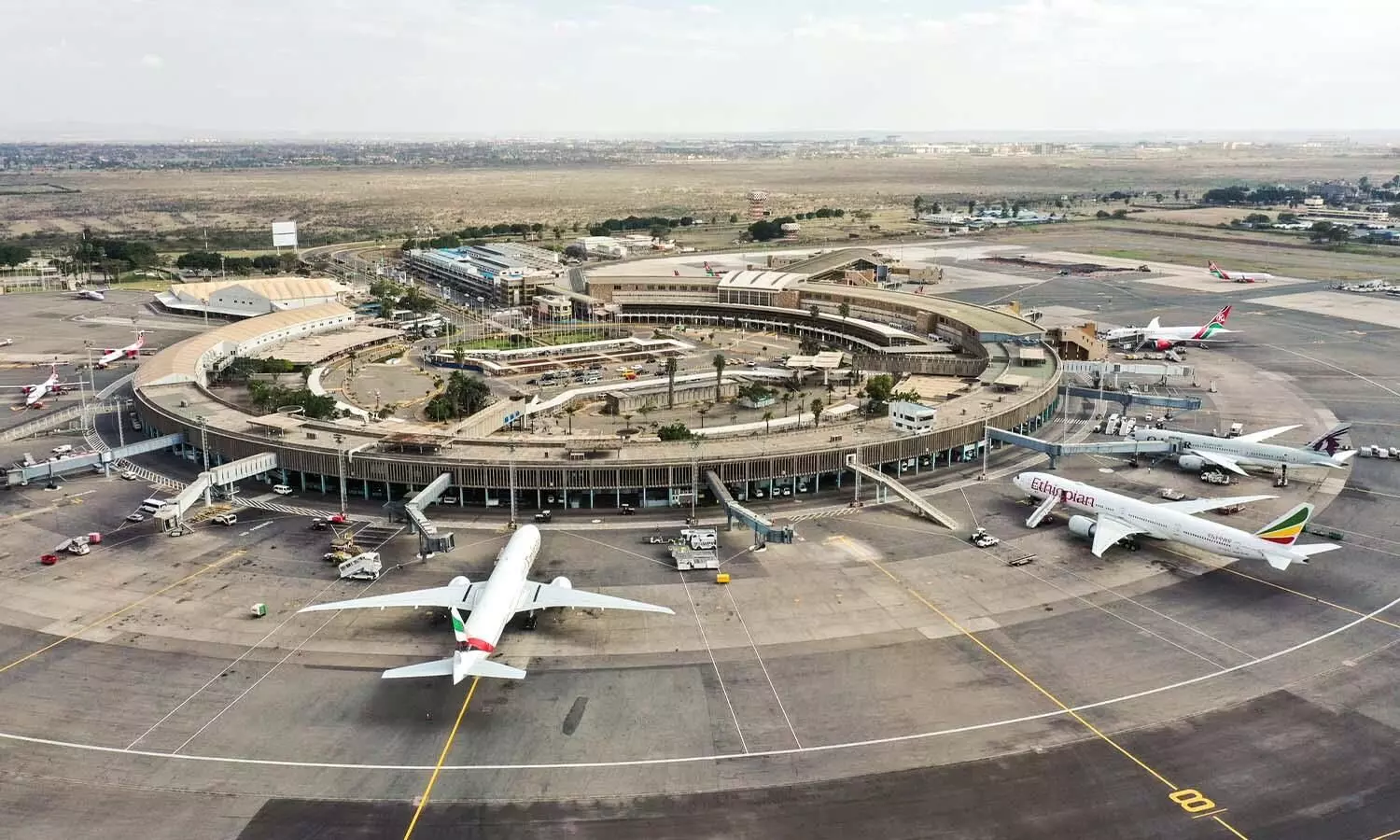
Kenya's air cargo takes flight with new initiatives
Kenya's air cargo industry is undergoing transformative changes as stakeholders collaborate to enhance efficiency, transparency, and sustainability.

Kenya’s air cargo sector is poised for a major overhaul, with Jomo Kenyatta International Airport (JKIA) leading the charge. From adopting cutting-edge technology like an Air Cargo Community System to expanding infrastructure and exploring new markets, stakeholders are working together to create a more efficient, competitive, and sustainable logistics ecosystem. Key initiatives at JKIA, Kenya Airways, and private players like Astral Aviation are reshaping the air cargo industry.
JKIA is preparing to upgrade its cargo operations in several ways. For instance, Jacob Bwana, Commercial Manager - Cargo of Kenya Airports Authority, revealed the airport is developing an Air Cargo Community System, following successful models in European airports like Brussels and Frankfurt, to create a transparent, data-driven logistics ecosystem. "We are in the process of creating a very versatile air cargo community," Bwana stated, emphasising the goal of enhancing communication across the entire logistics value chain.
He was talking at the recently concluded Flower Logistics Africa 2025 in Nairobi.
"We are in the process of creating a very versatile air cargo community system. The end result is time compression and quick and visible transactions”
Jacob Bwana, Kenya Airports Authority
JKIA's tech, infra upgrades
The proposed system aims to compress transaction times and increase visibility by enabling real-time data sharing between stakeholders. "The end result is time compression and quick and visible transactions," Bwana explained, with a vision of potentially transitioning to blockchain-based trading in the future.
Central to this approach is improved stakeholder communication. The airport already conducts weekly meetings with business leaders to discuss expected cargo capacity and provides daily updates on executed shipments. "Our relationship with stakeholders is really geared towards data analytics being center stage in terms of decision-making," Bwana highlighted.
This initiative could significantly transform Kenya's air cargo operations, particularly in critical sectors like the flower export industry, by creating transparency and efficiency.
Caleb Kositany, Chairman of Kenya Airports Authority (KAA), also advocated for stakeholder collaboration and increased cargo stakeholders' involvement in industry decision-making to drive growth and competitiveness.
"We want to ensure that cargo stakeholders are actively involved in key decisions that we make as the industry drivers," he stated. He argued that stakeholder insights and partnerships are essential to creating agile and competitive cargo hubs capable of meeting future market demands.
Kositany outlined specific strategies to support this collaborative approach, including infrastructure expansion and modernisation. "We need to expand our cargo infrastructure, including modern pack houses, cold room facilities, and dedicated perishable cargo terminals across our airports," he explained.
He specifically highlighted plans for Eldoret and Mombasa International Airports as key focus areas for horticulture exports.
The chairman's vision extends beyond infrastructure, emphasising the importance of sustainability and innovation. "To sustain this momentum, we must harness investment in sustainability and green energy, particularly to reduce carbon emissions in cold chain handling," Kositany said.
By prioritising stakeholder involvement, Kositany aims to position Kenya as a leading global logistics hub, leveraging the country's strengths in air cargo exports, particularly in the horticulture sector.
"In 2024, we were able to transport about 12,000 tonnes of livestock products, which has exponentially boosted the sector.”
Peter Musola, Kenya Airways
Kenya Airways' capacity expansion
As the Kenya Airports Authority continues to enhance its infrastructure and operational efficiency, airlines operating out of these facilities are also playing a crucial role in shaping the country's air cargo landscape. Kenya Airways, one of the key players in this sector, has been actively expanding its cargo capabilities to meet growing demand. The airline's investments in new freighters and routes are part of a broader effort to support Kenya's export industries, particularly in sectors like horticulture and livestock.
Peter Musola, Head of Cargo Commercial at Kenya Airways, outlined the strategy that promises to redefine the nation's export logistics landscape.
The industry has confronted significant challenges, particularly in the wake of global disruptions. "Like during the Covid-19 pandemic, last year we saw major events, including the Red Sea, which dramatically impacted our cargo capacity," Musola explained. The airline's cargo capacity dropped from 5,500 tonnes to 4,200 tonnes weekly, representing a substantial challenge for exporters.
Responding to these challenges, Kenya Airways made bold moves. "We committed to introducing capacity as a national carrier," Musola stated. The airline introduced two 737-800 freighters, deployed to support export sectors, particularly livestock.
A standout achievement has been the airline's support of Kenya's meat sector. "In 2024, we were able to transport about 12,000 tonnes of livestock products, which has exponentially boosted the sector," Musola highlighted, noting double-digit growth rates in this segment.
The airline is not just expanding capacity but also exploring new markets. "We're looking at opening new frontiers in the Middle East - Jeddah, Riyadh, Muscat, and Bahrain," Musola revealed. While European markets show 5-8% annual growth, Middle Eastern markets promise 12-15% growth potential.
Looking ahead, Kenya Airways has an ambitious plan. "We are looking at bringing in wide-body capacity in 2025," Musola announced, emphasising a joint strategy with the Kenyan government to anchor at least 30% of the national horticultural export market. Kenya Airways currently operates four narrow-body B737 freighters.
Meanwhile, Patricia Odida, Chief Commercial Officer at Astral Aviation, outlined her company’s plans for expanding air freight capacity to support the flower and perishable industry.
She announced that Astral Aviation would introduce a Boeing 767-300 freighter with a 50-tonne capacity later this year and potentially deploy a Boeing 777 freighter by 2027 for European markets. "We aim to support the sector by steadily increasing capacity for destinations like Europe," Odida stated, underscoring Astral Aviation's commitment to addressing logistical challenges.
From JKIA’s Air Cargo Community System to Kenya Airways’ fleet expansion and Astral Aviation’s capacity-building efforts—paint a promising picture for Kenya’s air cargo industry. By prioritising collaboration, innovation, and sustainability, stakeholders aim to position Kenya as a global logistics hub for horticulture and other exports. These transformative strategies not only address current challenges but also lay the groundwork for long-term growth in this critical sector.
The article was originally published in the April 2025 issue of The STAT Trade Times.

